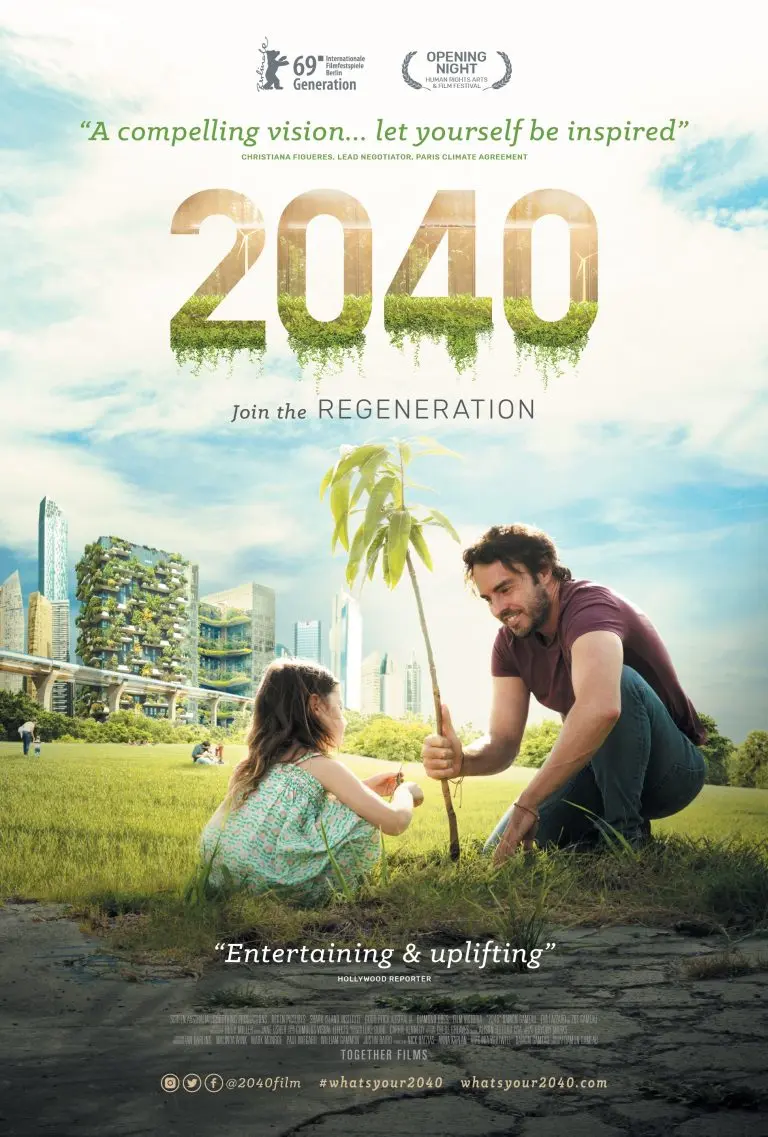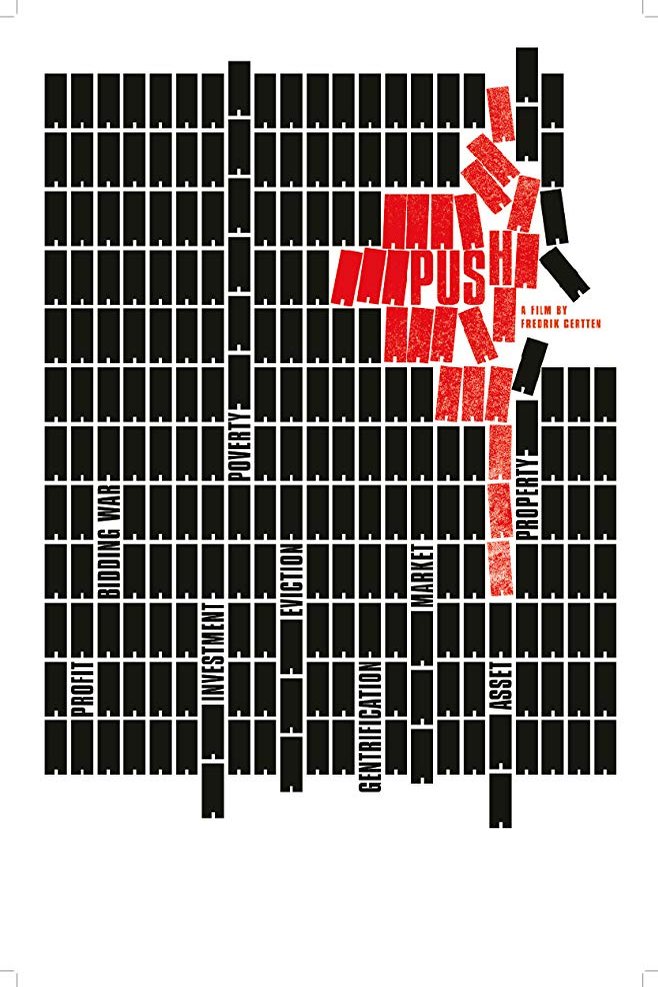Films for Change — A Community Film Series
Films for Change is a community inspired film series showing films of positive and inspiring content related to sustainability, with the intention of bringing together our Kamloops community to connect and raise awareness while sharing the desire to make a difference.
Films take place at TRU, usually on the last Wednesday of the month (except December, June, July and August). Any community group can apply to have a film shown.
Upcoming Films
-

2040
- Date: Wednesday, April 17, 2024
- Time: Door open at 6:30 p.m.
- Location: Alumni Theatre, Clock Tower
- Synopsis: 2040 is an Australian documentary released in 2019 that looks at the effects of climate change over the next 20 years and what technologies that exist today can do to reverse them. It follows the director, Damon Gameau, in his imagining of a future for his four-year-old daughter, Velvet, where climate change has been solved.
-

PUSH
- Date: Wednesday, May 29, 2024
- Time: Door open at 6:30 p.m.
- Location: Alumni Theatre, Clock Tower
- Synopsis: PUSH is a Swedish documentary released in 2019 focused on the global housing crisis. Housing prices are skyrocketing in cities around the world. Incomes are not. PUSH sheds light on a new kind of faceless landlord, our increasingly unlivable cities and an escalating crisis that has an effect on us all. This is not gentrification, it’s a different kind of monster. The film follows Leilani Farha, the UN Special Rapporteur on Adequate Housing, as she’s travelling the globe, trying to understand who’s being pushed out of the city and why.
Basics of the series
- Sponsored by the TRU Sustainability Office.
- Usually on the last Wednesday of the month (besides Dec, June, July, Aug).
- Doors open at 6:30 p.m., film starts at 7:00 p.m.
- Groups can start setting up at 5:30 p.m.
- Typically at TRU Alumni Theatre in the Clock Tower (capacity 212 seats).
- Average audience size since the series started: 60
- Can show more than one film, but maximum showing time is 2.5 hours, and minimum is 1 hour.
- A TRU representative must be on hand during the event.
- Host community groups must pay for film, but can ask for donations at the door to recoup costs.
- Community group can charge for concession items or ask for donations.
- TRU has a popcorn cart it can lend for free, but host group must clean it after it’s used. Ratio of oil to popcorn kernels is ¼ cup to cup.
- No drinks besides water are allowed in theatre (due to chance of spills).
- Encourage patrons to bring a reusable water bottle and fill it at the water fountain located in the lobby.
- Host group must organize some sort of facilitated discussion at the end of the film(s). Please ask for further details about this.
- Host group must help tidy up the theatre at the end of the event.
- Host group must provide a head count at the end of the event to the TRU representative.
The film vetting process and committee
The process for approving a film is to send Marcia Dick ([email protected]) and James Gordon ([email protected]) the following:
- Basic information about your group.
- Synopsis of the film, link to the trailer, and, if available, two or three reviews of the film.
- Three top choices for proposed dates of screening Marcia or James will notify you two weeks after receiving this information whether your film is approved.
- A committee decides whether films are approved.
Criteria for films
- They should promote sustainability (cultural, social, environmental, economic; and ideally a combination of some or all of these). This is the overall goal of the series.
- They should be evidence-based.
- They should support the concept of appreciative inquiry; that is, they should provide an overall positive message so that the audience will leave with hope, inspired to do more/ be better, etc., rather than discourage them from positive action.
- Movies can be short or long (for instance, two or more could be shown), but the event should take a minimum of an hour (movie + discussion) and a suggested maximum of 2.5 hours.
